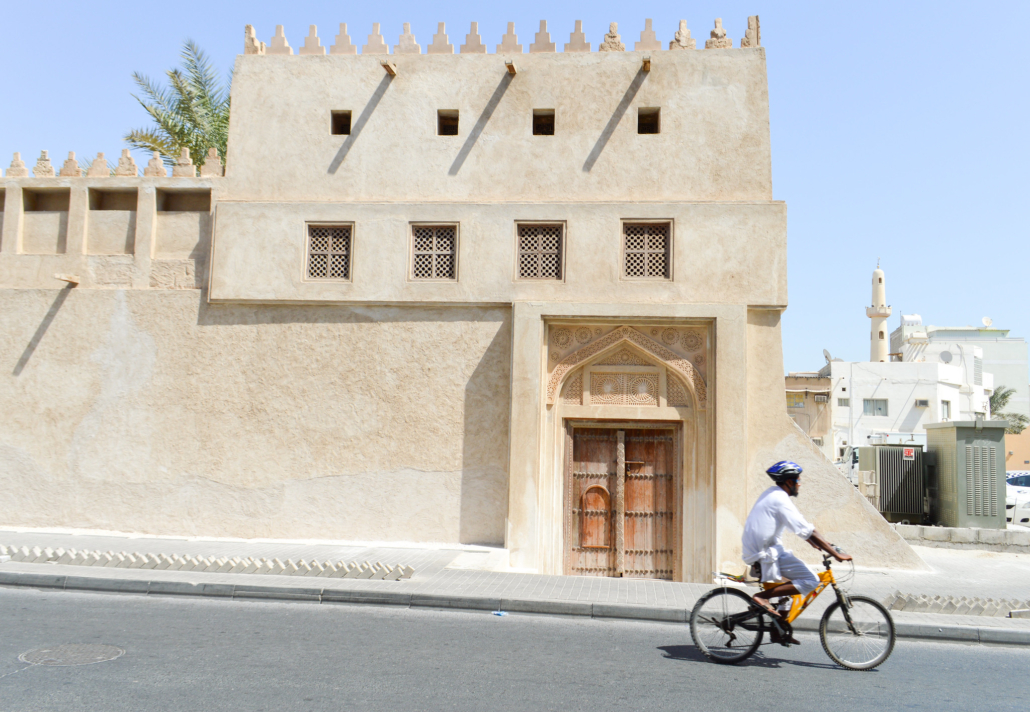Impact of COVID-19 on Poverty in Bahrain

Just like many other countries in the world, the impact of COVID-19 on poverty in Bahrain was considerable. The nation’s GDP shrank 6.9% due to the pandemic during the third quarter of 2020 when compared with 2019. In comparison to other Gulf states, Bahrain performed slightly worse as Qatar had an economic output of -3.7% and the UAE’s economy shrank by 6.1% in 2020. Though there are no definitive poverty estimations, other indicators point toward an overall increase in poverty in Bahrain during the pandemic.
Reaction to COVID-19
During its worst period, daily new COVID-19 cases in Bahrain rose to 8,000 at the start of February 2022. Bahrain had more than 60,000 active cases by February 7, 2022. As of February 12, 2023, Bahrain has suffered a total of 700,835 COVID-19 cases and 1,544 COVID-19 deaths.
Just like many other governments around the world, Bahrain implemented lockdowns as a countermeasure to the rising COVID-19 infections. By choosing this method to curb the COVID-19 cases in the country, the government of Bahrain effectively brought the country to a standstill. The government halted/restricted the activity of shopping malls, restaurants and cafes, gyms, cinemas, sports events and more.
As a result, both consumption and production in Bahrain dropped. Bahrain’s trade during COVID-19 declined considerably. In fact, “trade with the largest economy in the region,” Saudi Arabia, decreased by 2.1% within the “first nine months of 2020.” Furthermore, trade with Kuwait and the UAE dropped by 15.4% and 21% respectively.
With Bahrain’s unemployment rising to 9.4% in 2020, the government announced an economic stimulus package in March 2020 worth 4.3 billion Bahraini dinars to support the country’s citizens due to the effects of the lockdowns.
The government aimed to keep the private sector afloat and ensure employees continued to receive their salaries for three months. The stimulus package also covered the cost of electricity and water bills for three months and absolved all tourism-related businesses from tourism levies, among other measures. Overall, the stimulus package aimed to reduce the potential increase in poverty in Bahrain due to COVID-19. However, financial worries for Bahrain due to the economic impact of COVID-19 on poverty in Bahrain led to more financial aid from fellow Gulf Arab states Saudi Arabia, Kuwait and the UAE.
Oil Dependency
As a Gulf State, it comes as no surprise that Bahrain has significant oil reserves. However, unlike other nations in the Middle East, Bahrain has not diversified its economy. While significant effort went into reducing Bahrain’s dependence on oil prices, oil and gas revenue still accounted for about 75% of government funds in 2016.
Oil prices fluctuate regularly, and as a result, the Bahraini economy has struggled when oil prices drop. The result has been an irregular growth in Bahrain’s budget deficit. The impact of COVID-19 exacerbated Bahrain’s circumstances and the World Bank stated, “lower oil prices since 2014 had widened fiscal and external imbalances and intensified macroeconomic vulnerabilities.”
Due to the COVID-19 outbreak and subsequent financial impact, Bahrain announced drastic spending cuts in April 2020. According to Al Jazeera, the Gulf Island cut expenditure by up to 30% across ministries and government agencies. Cuts across the board at the government level can affect those on lower incomes more than any other section of the population as many rely on government-run social safety nets to stay financially afloat.
Poverty in Bahrain
Though no official poverty estimates exist that would indicate an increase in impoverishment in Bahrain amid the pandemic, a UNDP “Assessment of the Socio-economic Impacts of COVID-19 on Bahrain” shows a decline in living standards, indicative of poverty. A survey shows that Bahrainis and Bangladeshis living in Bahrain “suffered considerable amounts of self-reported economic distress, in the form of job losses and decreased income.”
However, positively, Bahrain’s unemployment rate reduced from 7.7% in 2021 to 5.4% in 2022. In comparison to other Arab nations, Saudi Arabia’s unemployment rate rose to 9.9% in 2022 and the UAE’s unemployment rate rose to 3.4% in 2021.
Bahrain’s ongoing oil dependence and the effects of government-imposed restrictions during COVID-19 have led to economic instability in the nation. The Bahraini government’s decision to add roughly $470 million to its budget in 2020 to cover potential emergency pandemic spending likely limited the impact of the pandemic on the Bahraini economy.
The stimulus package propelled economic activity and put Bahrain on track to recover from the pandemic. By 2021, Bahrain’s GDP had seen an increase of 2.2%. Diversification of the economy will improve economic stability in Bahrain, especially amid recovery from the impact of COVID-19 on poverty in Bahrain.
– Josef Whitehead
Photo: Flickr
